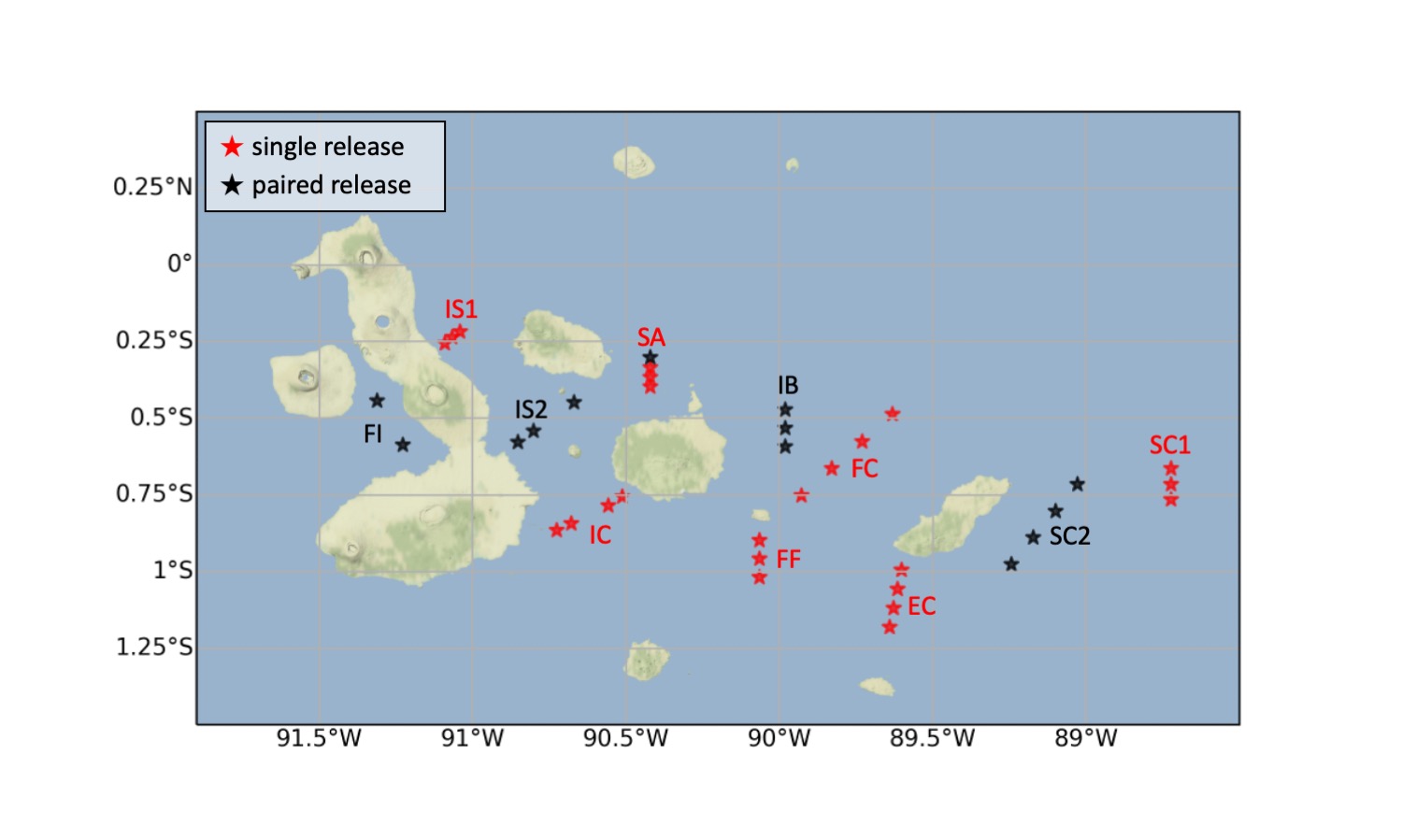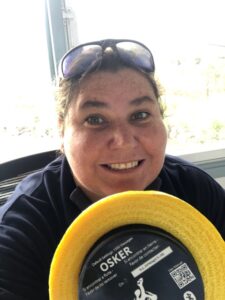[collapsibles]
[collapse title=”What is the Galapagos Plastic Free project?”]
The unique marine ecosystem of the Galapagos Islands is threatened by plastic pollution. To support clean-up efforts of the Galapagos Park Management we are developing a predictive model to assess where and when to most effectively remove plastic pollution through beach clean-ups. We need a better understanding of what is happening to floating plastic close to the shoreline. Therefore, GPS-tracked drifters will be released within the marine reserve in the coming months, which you can follow in real-time on this page!
[/collapse]
[collapse title=”What does the drifter look like?”]
This is Inti Keith from the Charles Darwin Foundation holding one of the drifters. Each drifter weighs 517 g and has a diameter of about 20 cm. They can store their position every 10 minutes using their GPS and send these positions via a satellite every 4 hours. Inti will release these drifters at several locations in the marine reserve as indicated in the map below:

[/collapse]
[collapse title=”What should I do when I find a drifter?”]
Is the drifter still in the water? Leave it floating, make a picture and send it to us! Is the drifter on land? Mark its position, but don’t pick it up. Make a picture and send its location and picture to us as well.
[/collapse]
[collapse title=”How can I follow the drifters?”]
You can follow the journey of each of the 50 drifters we will deploy in the coming weeks. The map below is updated every six hours and shows where they travel in real-time! Which one is your favourite? Share it on social media! You can also download the data and analyse their trajectories yourself.
[/collapse]


